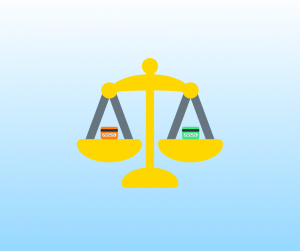DIY Credit Repair Basics

How Does a Late Payment Impact Your Credit Score?
09/15/2022
How to Rebuild Credit After a Divorce
09/30/2022This guest post was contributed by Pyramid Credit Repair. It does not constitute an advertisement, endorsement, or recommendation by Tradeline Supply Company, LLC. We do not receive compensation for this content.
Credit, as related to personal finance, refers to someone’s ability to pay lenders back. Many years ago, bankers and individual lenders were forced to gauge a prospective borrower’s credit subjectively—they had no metrics or statistics to turn to in making such judgments.
In 1989, the Fair Isaac Corporation—the company since has changed its name to FICO—introduced the FICO score to the United States market. Here are the five factors used to determine someone’s FICO score:
- 10% is based on what types of credit consumers have on their credit histories. Diversifying these types of debt generally improves FICO scores.

These five factors make up your credit score.
- Another 10% is based on the prevalence of what is known as a hard pull, which is an inquiry made by lenders into someone’s credit history. The more hard pulls consumers have, the lower their scores will be for several months. Hard pulls factor into people’s FICO scores because they suggest that consumers want to take out as much debt as possible in the near future, effectively “tricking” banks into believing that they will be paid back.
- 15% of FICO scores are based on the length of consumers’ credit histories. The longer someone has been borrowing and paying back money, the more likely they are to be able to pay lenders back.
- 30% of these scores come from the debt burden, a term used to describe a lineup of six different quantitative tools that are used to gauge how close consumers are to reaching their credit limits.
- The most heavily-weighted factor of FICO scores, at 35%, is that of payment history. The longer consumers have been consistently paying lenders back, the more likely they are to continue making payments to existing creditors and new creditors.
Having a Low Credit Score Can Lead to Unwanted Consequences
Most people think that credit scores and credit reports aren’t ever used outside of determining how suitable prospective borrowers are. After all, it makes sense to think that a metric designed specifically for determining how likely it is that someone will pay their debts back should only be used for lending purposes.

A bad credit score can have serious consequences, and not just for your finances. Photo via cafecredit.com.
However, there are a variety of alternative uses for credit scores and reports. Let’s take a look at a few of them so you can better understand the true value of FICO scores.
Did you know that landlords sometimes turn to credit scores and credit histories as part of evaluating applicants? This is especially true for expensive houses, apartments, and other living spaces. People with high credit scores are shown to be more reliable when it comes to paying their rent or mortgage on time than their low-credit-score counterparts.
Utility companies, the providers of water, natural gas, and electricity, often check people’s credit scores to determine what their security deposits should be. In most cases, employees aren’t asked to subjectively judge people based on their credit scores. Rather, they have complex software that essentially acts as actuarial risk estimators that tell utility companies how much money security deposits should be to best safeguard themselves against negative financial outcomes.
If you’re looking for a job in which you’ll be expected to handle cash or otherwise deal with money or valuable items, prospective employers are likely to turn to your credit report. Even if you have stellar credentials that would ordinarily put you at the front of the hiring line for such jobs, a poor credit history could be a red flag when it comes to evaluating potential employees in such capacities.
Lastly, you’ll almost certainly end up paying more money to your insurance provider in monthly premiums as a result of a low credit score. Research has found statistical links between low credit scores and risk-taking behavior, which is the reason why insurance companies turn to credit scores.
Repairing Your Credit Score on Your Own—Here Are a Few Ways to Do It
Look at Your Credit Reports and Dispute Errors
Sometimes, credit bureaus mess up and put debts that don’t belong to you on your credit reports. If you notice any such mix-ups, reach out to the credit bureaus and dispute such claims.
Knock Off the Largest Credit Balances First

Don’t take out more debt while repairing your credit.
Credit scores penalize consumers who have credit cards with utilization ratios of greater than 10% for FICO scores and 30% for VantageScores. If possible, start paying off the largest credit card balances you have to start seeing your score go up soon.
Don’t Take Out New Debt
Although this might seem like a no-brainer, tons of people who are in debt take out new credit cards and loans just to pay their other creditors off. This strategy should never be used due to how risky it is. Furthermore, it costs money thanks to interest charges and late fees.
If you’re completely overwhelmed with debt and don’t know where to start, turning to professional, reputable credit counselors or credit repair companies could be a good move to make—well, as long as you’re not digging yourself deeper into debt to pay such credit repair companies.
Video: DIY Credit Repair—Can You Clean Up Your Own Credit Report?
Want to learn even more about repairing your credit yourself? Check out the Credit Countdown video from our YouTube channel below!





